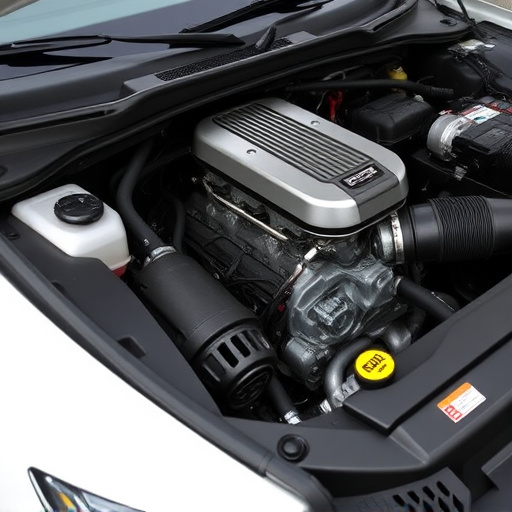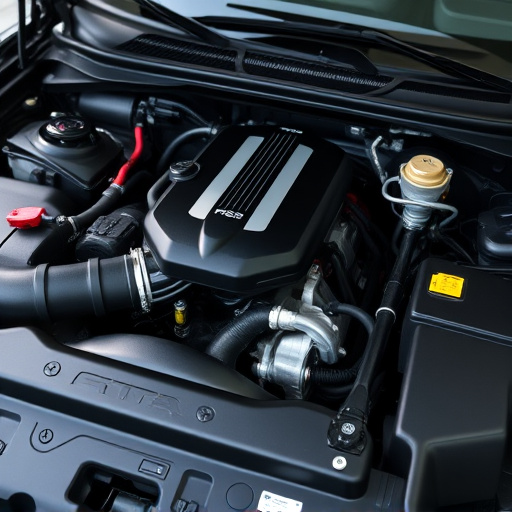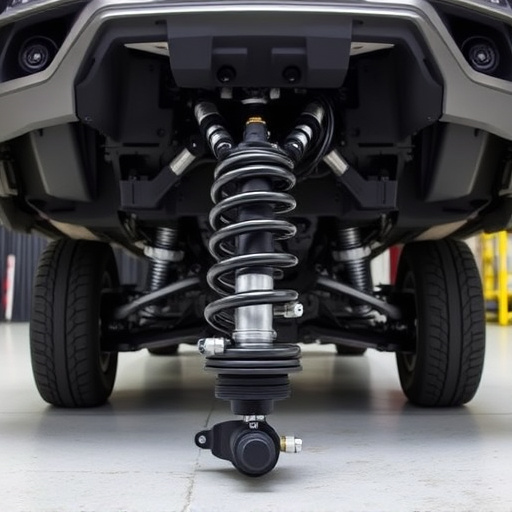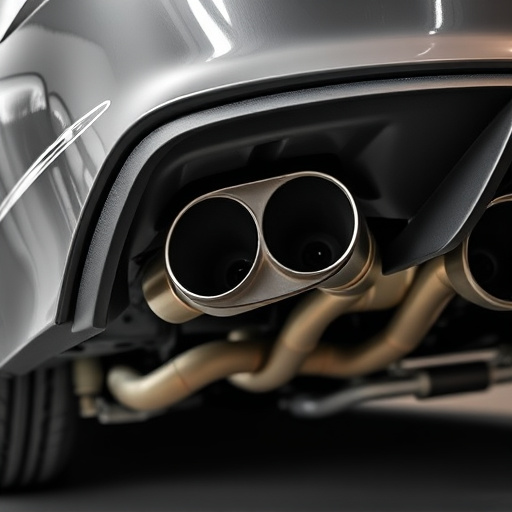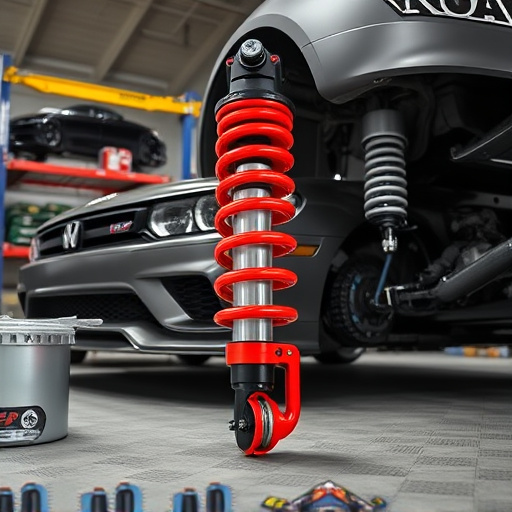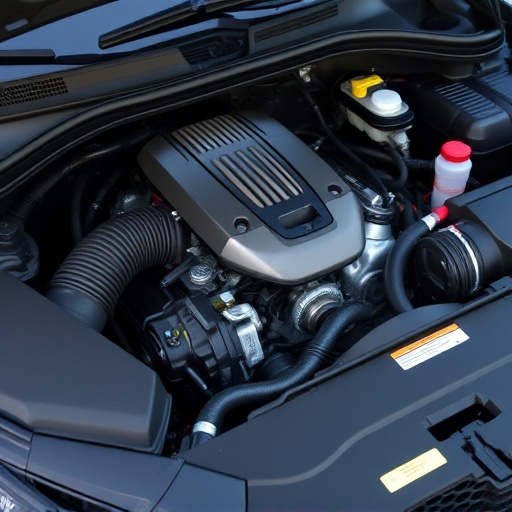Engine tuning optimizes performance and efficiency by meticulously adjusting parameters like fuel injection, ignition timing, and compression ratios after installing aftermarket mods like headers or downpipes. It ensures components work synergistically for maximum power and torque while maintaining stability and reliability. Poor tuning can lead to lower fuel efficiency, higher emissions, and engine damage. Tuners must consider changes in airflow dynamics, backpressure, and exhaust flow when making adjustments, selecting appropriate exhaust tips/mufflers. A holistic approach integrates air intake systems, filters, brakes, spark plugs, timing adjustments, and fuel delivery for maximum efficiency, enhanced power output, improved responsiveness, and a smoother power band.
“Unleash your vehicle’s full potential with an in-depth look at engine tuning tailored to performance mods like headers and downpipes. This comprehensive guide explores the intricate relationship between engine tuning and modification components, offering insights into how they work together. Learn about the key considerations for aligning engine tuning with these upgrades to maximize performance gains. Discover strategies to optimize engine performance and enjoy a harmonious blend of enhanced power and efficient control.”
- Understanding Engine Tuning and Its Impact on Mods
- Key Considerations for Matching Tuning to Performance Mods
- Strategies for Optimizing Engine Performance with Tuned Systems
Understanding Engine Tuning and Its Impact on Mods
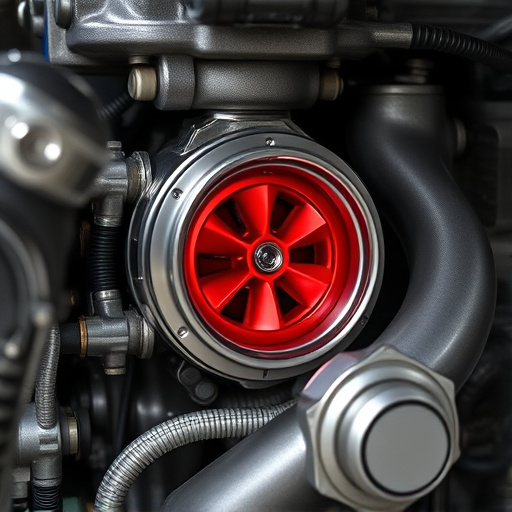
Engine tuning is a process that fine-tunes an engine’s parameters to optimize its performance and efficiency. It involves adjusting various settings like fuel injection, ignition timing, and compression ratios to ensure the engine runs at its best, especially when combined with aftermarket modifications. These mods, such as high-flow headers or downpipes, can significantly impact vehicle performance, but they require careful tuning to function optimally.
When installing performance air filters or upgrading brake components, for instance, engine tuning ensures these parts work in harmony. It allows the engine to deliver maximum power and torque while maintaining stability and reliability. Improper tuning might result in reduced fuel efficiency, increased emissions, or even potential engine damage. Therefore, understanding engine tuning is crucial for anyone looking to enhance their vehicle’s performance and take full advantage of installed modifications.
Key Considerations for Matching Tuning to Performance Mods
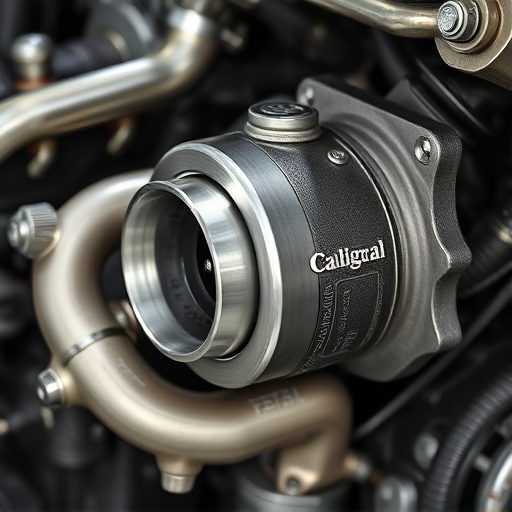
When tuning an engine to complement performance mods like headers or downpipes, several key considerations come into play. Understanding the specific changes made to the exhaust system is paramount. For instance, headers and downpipes can alter airflow dynamics, backpressure, and overall exhaust gas flow, all of which significantly impact engine performance. Tuners must account for these modifications to ensure optimal settings for both power output and efficiency.
Additionally, the choice of exhaust tips or mufflers can influence sound levels and the visible aesthetic appeal, factors that may also affect driver preference and vehicle branding. Balancing these aspects requires a fine-tuned approach, ensuring the engine’s performance gains align with the intended modifications while maintaining drivability and legal emissions standards.
Strategies for Optimizing Engine Performance with Tuned Systems
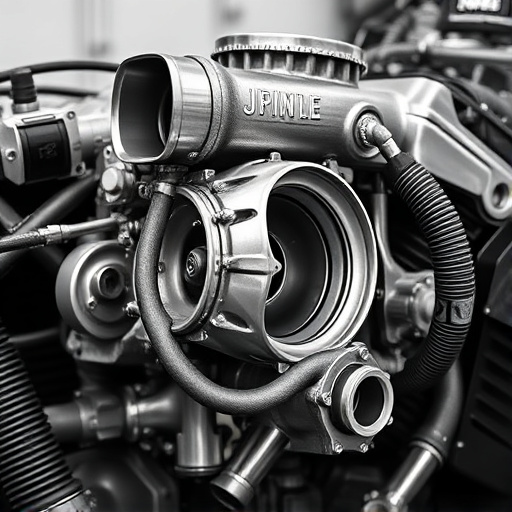
When it comes to optimizing engine performance with tuned systems, a holistic approach is key. Beyond simply installing headers or downpipes, focus on integration and balance within the entire powertrain. For instance, matching your engine tuning to upgraded components like high-flow air intake systems and air filter kits ensures maximum air-fuel ratio efficiency, enhancing power output. Additionally, consider the impact of improved brake rotors, which not only contribute to better heat dissipation but also enable more precise control during acceleration and deceleration, further refining your vehicle’s overall performance.
Strategic tuning adjustments, such as optimizing spark plugs, adjusting timing, and fine-tuning the fuel delivery system, play a crucial role in harnessing the full potential of modified hardware. These strategies not only enhance engine responsiveness but also ensure a smoother power band, improving both performance and efficiency. By seamlessly integrating these upgrades through meticulous engine tuning, you can achieve a harmonious driving experience that leverages the strengths of each component.
Engine tuning is a delicate art, especially when paired with performance mods like headers or downpipes. By understanding the interplay between these components and employing strategic adjustments, you can unlock your engine’s full potential. Key considerations include balancing power gains, maintaining efficiency, and ensuring compatibility to prevent harm. Optimizing your tuned system delivers not just enhanced performance but also a seamless driving experience, demonstrating that effective engine tuning is a game-changer for any vehicle enthusiast.








